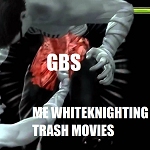|
I don't really know anything about Require.js, why is it dog poo poo?
|
|
|
|

|
| # ? May 16, 2024 14:27 |
|
I'm fairly happy with require.js, but I have a sort of edge case situation where I need to load different modules at runtime.
|
|
|
|
How do you handle circular dependencies? Or are you doing it manually, and if you're doing it manually, why aren't you just importing using the script tags, or using a build tool for production releases and leaving the individual files loaded for development? It's a lot of overhead to solve something and it's very error prone. I wouldn't throw this stuff on a mobile phone either. Not to mention you could be really ramping up the amount of HTTP requests.
|
|
|
|
How are you supposed to handle circular dependencies in the "just build on the server" case, or in the "just use a script tag" case?
|
|
|
|
cross posting from general programming thread What's the latest and greatest for Javascript IDEs? I don't do JavaScript often so I mostly just ssh to a toy VPS I own and use vi and hit a page with a browser. But now I got a project I'd like to work on that's full of javascript buzzwords, AJAX, Bookmarklet, page injection etc... and I'd probably kill myself if I had to continue to do vi.
|
|
|
|
Hughlander posted:cross posting from general programming thread Strangely enough, MacVIM (or gVIM) is by far my favorite JavaScript editor / IDE. Snip mate, nerdTree, and a couple other plugins, and it is amazing. vi is not fun, vim is great, and the GUI versions are wondrous.
|
|
|
|
Hughlander posted:cross posting from general programming thread Sublime Text 2 is great. JavaScript really doesn't need an IDE.
|
|
|
|
Suspicious Dish posted:How are you supposed to handle circular dependencies in the "just build on the server" case, or in the "just use a script tag" case? Everything is in one file, so if you don't call a function before it's defined, you are ok. You can't get into a situation where you a loading a file from another file, where that file loads the first one. Funking Giblet fucked around with this message at 11:33 on Jun 24, 2012 |
|
|
|
I'm creating a game in Javascript and also a level creator for it. At the moment I have the level saved on the server in a .txt-file and the content of the level(just enemies at the moment) saved in an .xml-file. I have managed to open both files using XMLHttpRequest and I can save the level by also using XMLHttpRequest and a simple code:But now I want to save the content of the level to the .xml-file and the enemies are stored as Objects in an array like so: code:
|
|
|
|
Is there any particular reason you're using XML? I'd probably use JSON.
|
|
|
|
Claeaus posted:I'm creating a game in Javascript and also a level creator for it. At the moment I have the level saved on the server in a .txt-file and the content of the level(just enemies at the moment) saved in an .xml-file. I have managed to open both files using XMLHttpRequest and I can save the level by also using XMLHttpRequest and a simple What Wheany said. Use JSON and keep all the things that get saved in the file in a property on the object in question. Then you just use JSON.stringify(enemyInstance.props) and enemyInstance.props = JSON.parse(someJSON) for your serialization. XML is awful, and it's doubly awful when JSON is literally part of the language you are writing in.
|
|
|
|
Hughlander posted:cross posting from general programming thread If you like IntelliJ you can try out WebStorm.
|
|
|
|
I'm using XML because it seemed like a nice way to save objects, but if you have a better idea I'm all for it!
|
|
|
|
Well good news, it sounds like JSON (JavaScript Object Notation) is exactly what you want!
|
|
|
|
I'm also going to go out and say not to use the explicit new Array(); and new Object(); constructors, and instead use the literal syntax, {} and []. You can write your example in literal syntax with:code:code:
|
|
|
|
Anyone care to elaborate on why require.js sucks? I like it just fine...
|
|
|
|
Funking Giblet posted:Everything is in one file, so if you don't call a function before it's defined, you are ok. You can't get into a situation where you a loading a file from another file, where that file loads the first one. Only if you have function declarations to be hoisted. Most everything looks like this: code:
|
|
|
|
Suspicious Dish posted:I'm also going to go out and say not to use the explicit new Array(); and new Object(); constructors, and instead use the literal syntax, {} and []. You can write your example in literal syntax with: I just thought that I could use Javascript's Array kind of as a vector in C++ and fill it with objects. But I will check out JSON, thanks!
|
|
|
|
You can add new items to an array using arr.push:code:
|
|
|
|
Claeaus posted:But I will check out JSON, thanks! Just a heads up, JSON is going to blow your mind and you'll be wondering how you got by without it for so long. It's so insanely simple and yet incredibly useful.
|
|
|
|
Suspicious Dish posted:Only if you have function declarations to be hoisted. Most everything looks like this: That's a recursive function that cycles forever (once I fixed the syntax errors)
|
|
|
|
I'm also sort of curious how you would run into a cyclic dependency problem, what behavior you would expect from it, or how you would fix it.
|
|
|
|
The example on the site is as followscode:Now, knowing the plugin happy attitudes of modern jQuery users, I can imagine the storm of modules that have inter-dependencies. Funking Giblet fucked around with this message at 09:40 on Jun 25, 2012 |
|
|
|
Funking Giblet posted:If you needed to have separate files for some reason, there are tons of build tools to do it for you. Do you have any favorites?
|
|
|
|
MSBuild triggering YUI
|
|
|
|
I'm starting to feel stupid, the following code gives an a[0] is undefined error but only outside the function, the first document.write works:code:code:
|
|
|
|
That's because it's asynchronous. The value has been read before the JSON was return / parsed. Where as the onreadystatechange is a listener that gets called every time the connection returns something, so it's called after the JSON returns Funking Giblet fucked around with this message at 13:08 on Jun 26, 2012 |
|
|
|
Claeaus posted:
 Please use code:
|
|
|
|
Changed to synchronous and JSON.parse, seems to work like I wanted it to now. Thanks!
|
|
|
|
I wouldn't recommend that, just have your function called inside the onreadystatechange function. You might have problems if say, your JSON file was 200mb.
|
|
|
|
Ah yes, blocking everything in the browser to parse some JSON. This will surely work out.
|
|
|
|
Why are you using XHR by hand? Use jQuery or MooTools or Dojo or something.
|
|
|
|
Suspicious Dish posted:Why are you using XHR by hand? Use jQuery or MooTools or Dojo or something. Nothing wrong with doing it "by hand", beats loading a few 100k of script.
|
|
|
Funking Giblet posted:Nothing wrong with doing it "by hand", beats loading a few 100k of script. Ehhh I would have to disagree with that. It's only 33KB minified, and you can load it from Google's CDN (meaning it is probably already in the users browser cache anyways). Then you can write his thing as: code:fletcher fucked around with this message at 20:43 on Jun 26, 2012 |
|
|
|
|
fletcher posted:Ehhh I would have to disagree with that. It's only 33KB minified, and you can load it from Google's CDN (meaning it is probably already in the users browser cache anyways). Then you can write his thing as: Then he can write the once off implementation that does support IE6 and forget about it forever, and still not be loading 100k+ (IPhone doesn't care for gzipped size only on disk size, it won't cache it efficiently if the uncompressed file is over 25k). Right tool for the right job, not the entire toolbox full of unnecessary tools, every time. jQuery is great and all, but some people can write this stuff themselves, once, and wire up what they need. Funking Giblet fucked around with this message at 09:32 on Jun 27, 2012 |
|
|
|
Throwing away reliable, tested code for your own implementation that you'll then have to maintain just so the user doesn't have to download 33kb of script is stupid. It's a waste of time and more error prone for a miniscule performance gain.
|
|
|
|
Where is a good source for picking up best practices etc for writing javascript for websites? Its not my first langauge, and so far I have solid grasp of the basics (async, callbacks etc). From what I gather you just import the scripts you want in order (if dependance matter). But when I start writing my own 'site.js' I'm kinda making stuff up as I go, I understand you can't access DOM elements before they load, but when do you put the scripts in the <head> vs after <body> is it normal for your document ready function to be one big list of methods, and selectors, which document ready is the best, if using jquery should you tap into it's ready functions. When should you do stuff outside of or before document ready. etc.. I think I know the answers to these, but I would hate to be wrong and have to unlearn bad habits and rewrite code, and most of it I've gathered from reading other people's code, that might not be idiomatic.
|
|
|
|
Kallikrates posted:Where is a good source for picking up best practices etc for writing javascript for websites? It really depends on who you ask and why they're doing it that way. Some debate that you put everything you can in <head> and write by using jquery's ready methods, or some other similar technique. There's another camp that debates you should execute everything after the document's loaded. The easiest way to do this is to place your <script> tags right before the closing <body> (btw you can't put <script> tags after </body> when doing DOM manipulations without IE throwing fits and your poo poo won't validate that way either) - Yahoo's performance group (and Google's iirc) both suggest this. The thing to remember is that as you load JS, the browser sometimes has to stop because, after it loads a script, it has to sit there and evaluate it and maybe even execute it. If you're not careful, you'll take up all the browser's pipelines doing this and the page can hang. Go read up on blocking vs. non-blocking javascript. I'm personally of the opinion that you do whatever you feel most comfortable with - most sites aren't using enough JavaScript to need to worry about things like blocking calls. Then again, a lot of sites are loading all of JQuery so they can use like 2 plugins with it, so I wouldn't worry too much about the "right way" to do it. Then again somebody else could come along in this thread and totally prove me wrong on everything above.
|
|
|
|
Kallikrates posted:Where is a good source for picking up best practices etc for writing javascript for websites? Watch this video (java script: The Good Parts). It's a pesentation by Douglas Crockford at Google Tech Talks. It's not about best practises for websites, but personally, it kinda blew my mind when I watched it: https://www.youtube.com/watch?v=hQVTIJBZook Also use JSlint/JShint with as few exceptions as possible. It will force you to write better Javascript.
|
|
|
|

|
| # ? May 16, 2024 14:27 |
|
Gordon Cole posted:Throwing away reliable, tested code for your own implementation that you'll then have to maintain just so the user doesn't have to download 33kb of script is stupid. It's a waste of time and more error prone for a miniscule performance gain. It's been changed a few times in the last number of releases, and it's been broken a few times, so it's neither reliable nor tested. (Not to mention the confusion after they change how attr worked, how reliable was that either?)
|
|
|
























